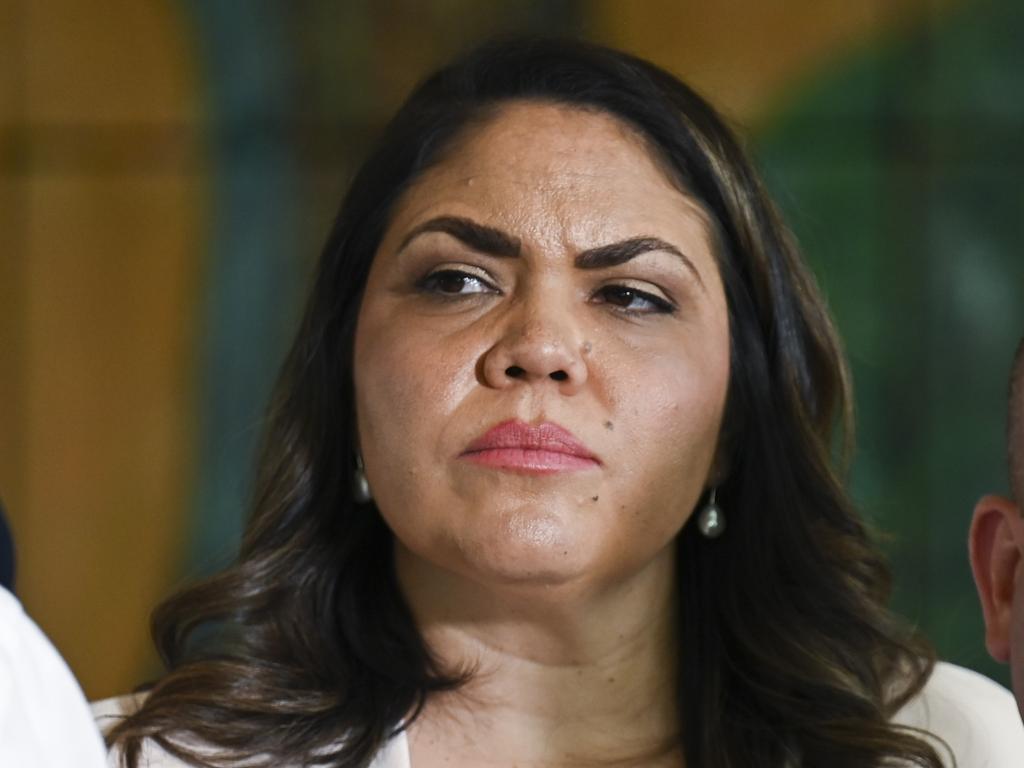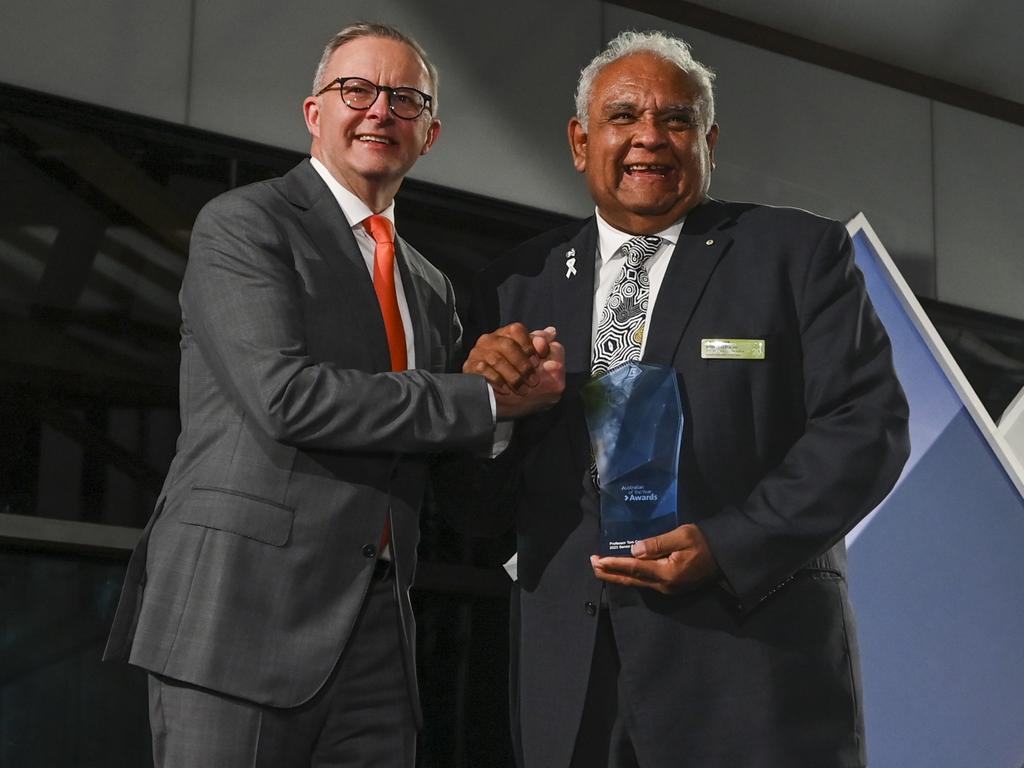We need a head of state who can unite, inspire and lead us


Our constitutional equivalent is the governor-general. Normally, it’s all about garden parties and conferring honours, but the viceroy’s reserve powers cut deep – as Gough Whitlam discovered.
This blunt reality dictates the choice of a governor-general. The only real consideration is that any appointment passes established criteria of suitability. Personal appeal or symbolism are dangerous distractions.
This is true even of the current push for an Indigenous governor-general. Such an appointment might be fitting, uplifting and desirable. But it cannot happen until a candidate is found who passes all the normal tests for the very model of a modern governor-general.

One straightforward criterion is that a governor-general cannot be a positive embarrassment to the nation and the sovereign, who nominally appoints him. With his top hat, bibulous reputation and controversial constitutional history, the ill-starred Sir John Kerr became a liability. He went, quietly.
But much more importantly in a Constitution containing built-in detonators – such as the Senate blocking supply or the possibility of an elected government acting unconstitutionally – the governor-general must have a steady hand and robust nerves.
This is the unavoidable reality of the office. As with the blocking of supply in 1975, Australia is not immune from constitutional crisis. That is why the governor-general possesses the nuclear “reserve powers”.
As we saw in 1975, the governor-general can dismiss a prime minister who cannot guarantee supply in the Senate. You may loathe the idea and regard Kerr as a morning-suited demon, but it is a constitutional fact.
More hazily, a governor-general might dismiss a government because it was determined to act illegally. This has not happened in Canberra – though there was a whiff around the Loans affair in 1975 – but NSW premier Jack Lang certainly was sacked on these grounds by the state’s governor, Sir Philip Game, in 1932.
So as Prime Minister Anthony Albanese ponders his choice ahead of David Hurley winding up his five-year term by the middle of this year, he has two things to consider. Yes, he needs a compelling and unifying head of state. But with the governor-general’s hand always on the nuclear trigger, he also needs someone calm, considered and, above all, no self-dramatiser.
Fortunately for Albanese, precedent supplies not only clear criteria for a governor-general, but also multiple examples of good and bad appointments.

The are four fundamental characteristics of a good governor-general. The first is that they are an effective symbol of national unity. People of every political, social and racial background should look to the governor-general as “our head of state”.
This has wide implications. It effectively rules out controversial appointments, no matter how much one is desired by a prime minister. Someone who is disliked by half the population cannot be governor-general. So, no Laura Tingles or Andrew Bolts.
It also rules out political hacks. This does not mean ex-politicians cannot be appointed. Labor’s Bill Hayden and Liberal Sir Paul Hasluck put in solid performances in Yarralumla. But they were elder statesmen, not time-servers.
The second requirement is dignity. The governor-general is the head of state, not a game show host. They must be friendly and empathetic, but not simpering publicity hounds. They must be able to mourn national disasters as well as chat with schoolchildren.
They also need the dignified capacity to look a prime minister in the eye and ask some very difficult questions. General Sir Peter Cosgrove, a war hero with a genial demeanour and a face that could turn to flint when confronted by impropriety, was exactly this sort of governor-general.

Third, they need to be bright. The do not need a doctorate, but they must grasp the complex constitutional and political history that surrounds their office. They also must understand current society, and how to engage with it.
The final requirement is the most important. A governor-general must have judgment. Particularly with the reserve powers, they need the ability to minutely weigh constitutional imperatives and political realities. Mistakes here are catastrophic.
The governor-general has the duty to advise, counsel and warn, but in a tiny number of cases, there is a duty to flatten.
All of this is why appointments are usually generals and judges, with the odd senior politician thrown in. Generals understand chains of command and historic protocols. Judges know the Constitution. Top-quality former politicians get how the system works.
The best example of a person thoroughly qualified for the post under this framework would be recently retired chief justice of the High Court, Susan Kiefel.
She is eminent, from a decidedly humble background, learned, and approachable.
But she is not Indigenous.

There is no doubt that an Indigenous appointment would have multiple attractions. It would be symbolic of reconciliation and a major step towards social and political inclusion. But there are three problems with an absolute determination to appoint an Indigenous person. Conceptually, this would involve determinedly ignoring any other candidate no matter how qualified, or indeed from any other disadvantaged minority.
Politically, a pre-determined appointment on the basis of indigeneity could easily be represented as a sly repudiation of last year’s referendum result.
Practically, the government would have to face the relative shallowness of the pool of talent.
Only around 4 per cent of Australians are Indigenous. It is hard enough to find an outstanding governor-general from the whole of the population, let alone just a narrow slice of it.
This probably is a controversial proposition, but it is demonstrated by some of the names being canvassed. How do these people – all admittedly eminent Australians – fit the established profile of a governor-general?
Marcia Langton is known for her scathing assessments of White Australia. Her every word would be trawled for insult. Unity would be impossible, and impartial judgment disputable.
The brilliant Noel Pearson is far too mercurial to trust with the reserve powers. Megan Davis has plenty of controversial statements behind her, strong affiliations with Labor, and was a major force behind many of the worst mistakes in the voice referendum.
Linda Burney, sadly, is a failed minister with a dead referendum around her neck. Her appointment to the office would be seen as a cynical exercise in political euthanasia, producing a similarly political governor-general.

But it is a tribute to Indigenous Australia that despite its relatively small number of members, there is a group of leaders who would be genuinely competitive in sitting the vice-regal test.
Senator Pat Dodson is wise, experienced and a genuinely just man. He would bring intelligence and dignity to the office. The real issue would be his health.
Ken Wyatt is a respected former Liberal member of parliament who would bring bipartisan credibility to the office. He is universally regarded as ethical, measured and decent.
Tom Calma and Mick Gooda are almost bookends of moderation. Each has a profound knowledge of government systems and operations. Both are highly intelligent and deeply committed to an Australia based on mutual respect between Indigenous and other Australians.
Pat Turner and June Oscar are both Indigenous women of great strength and insight who have fought unceasingly for their people without ever losing sight of the Australian bigger picture. They are experienced, effectively apolitical and the sort of people who easily could outface a prime ministerial malefactor.
Finally, there is Sean Gordon, my own personal favourite. He has long been the face of the Connected Communities movement, an approach that seeks to empower Indigenous people to do good for themselves.

By instinct both modest and moderate, he spans politics. His character as an Indigenous man is profound, but so is his love for Australians as a whole.
There will be those who say these candidates lack “polish” or fancy degrees. Polish does not give integrity, nor doctorates wisdom.
Besides, governors-general have a bevy of advisers and counsellors to assist them.
But all that can be asked is that these Indigenous possibilities are compared, like-for-like, against other candidates, according to the adamantine rules of appointment.
May the best person win, but it certainly would be nice if they were Indigenous.
Emeritus professor Greg Craven is a constitutional lawyer.





Some creatures look cute, fascinating and harmless, right up until they are provoked and deliver a deadly bite. Think of the blue-ringed octopus.